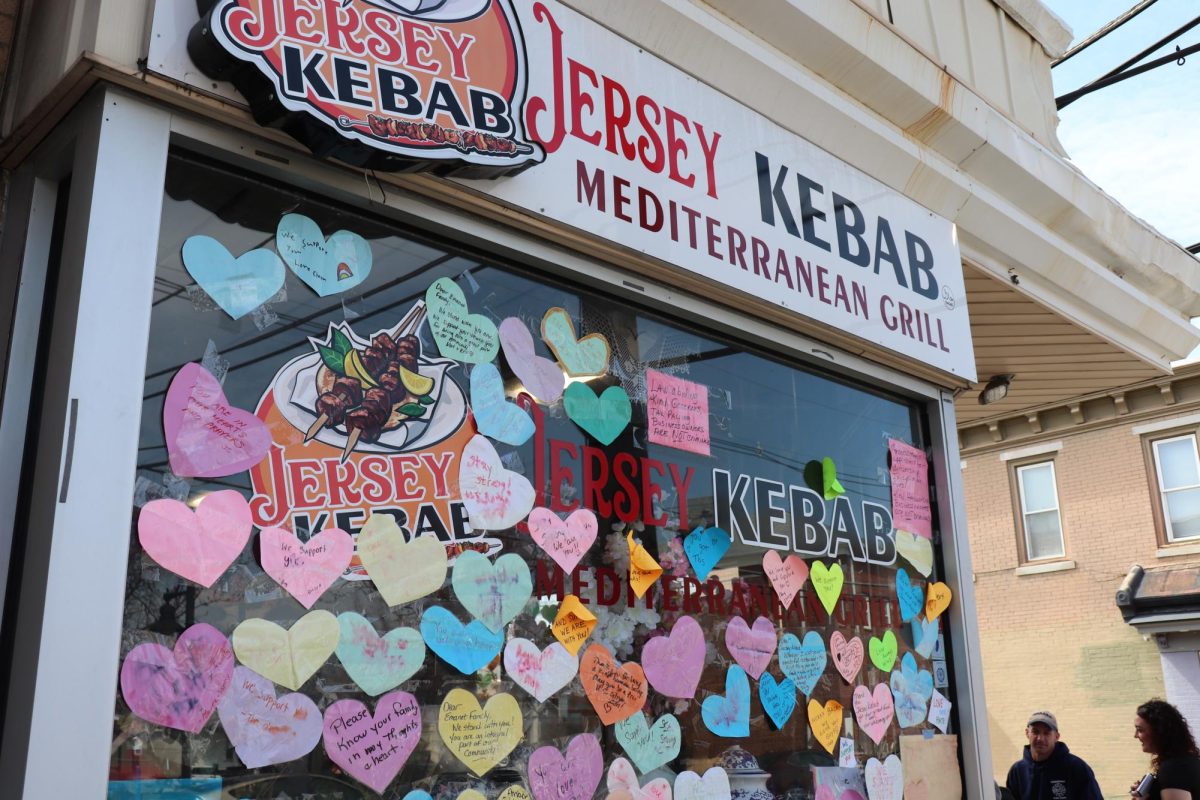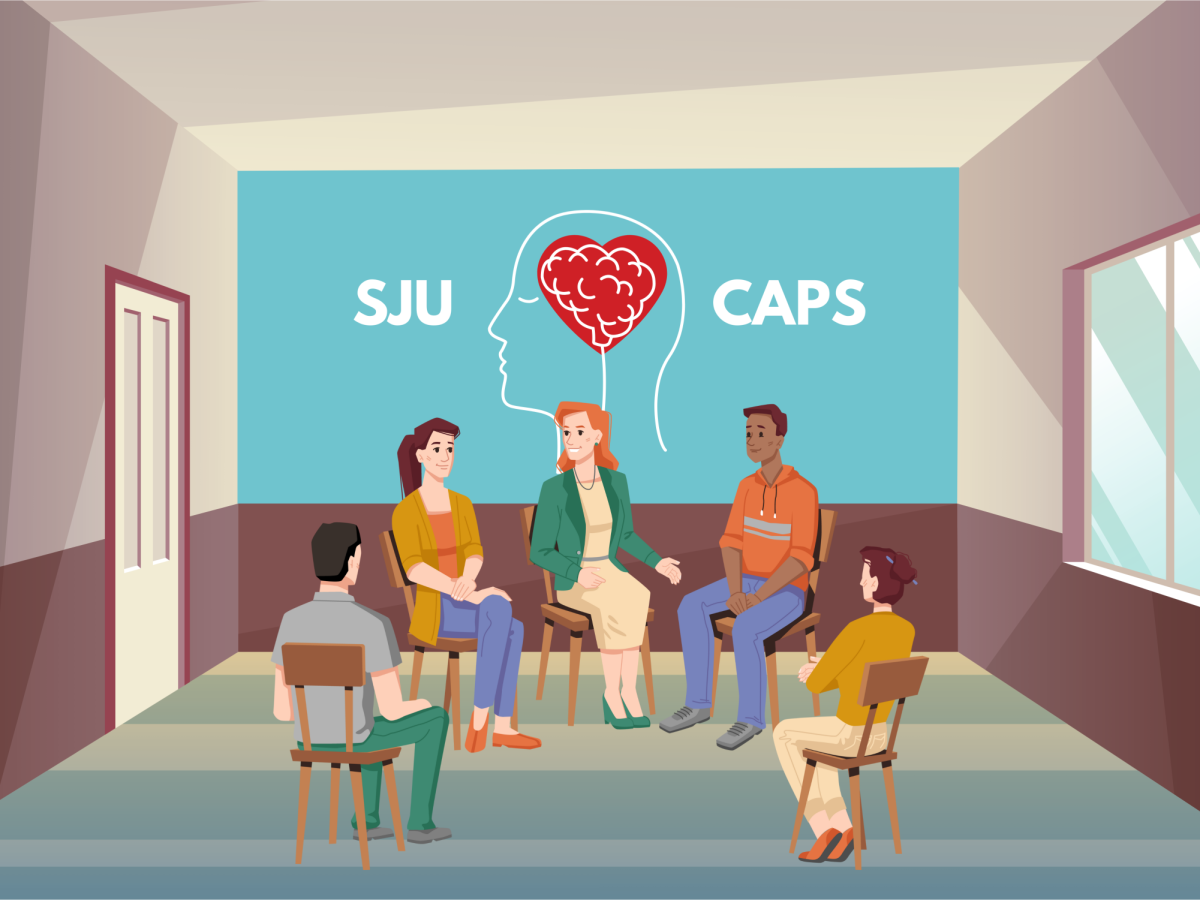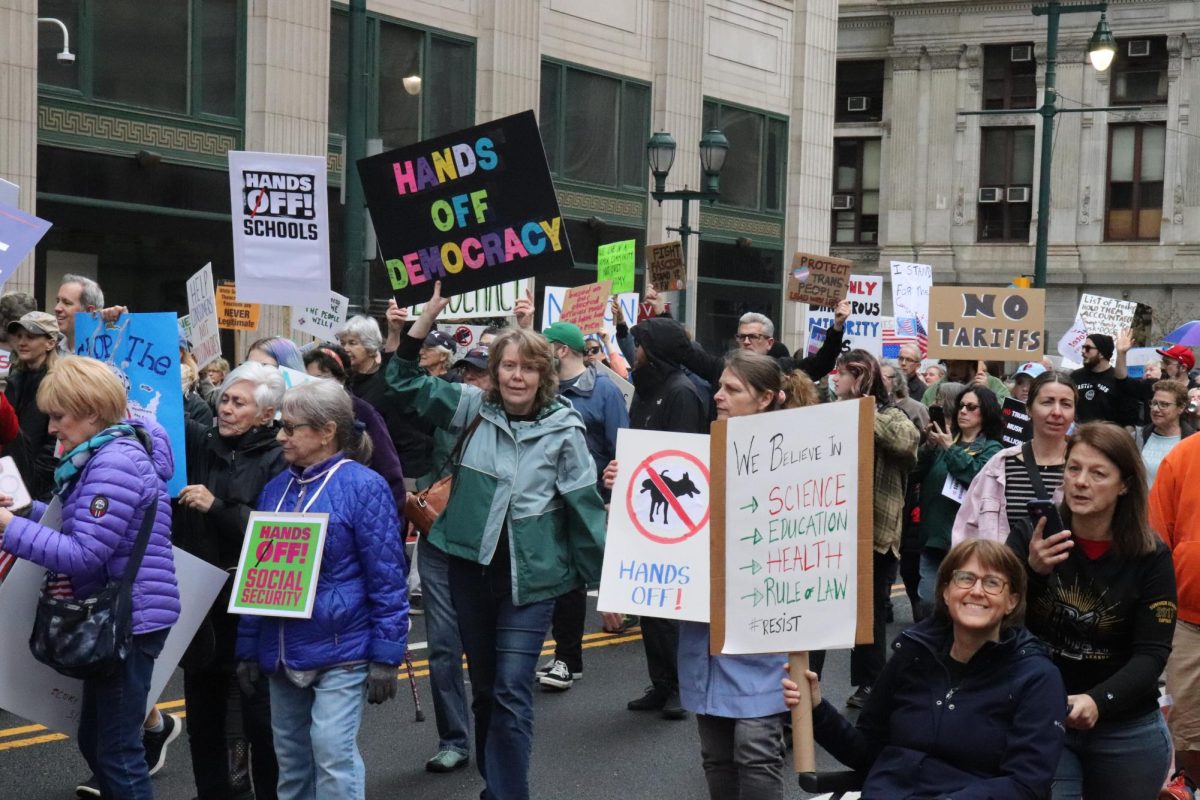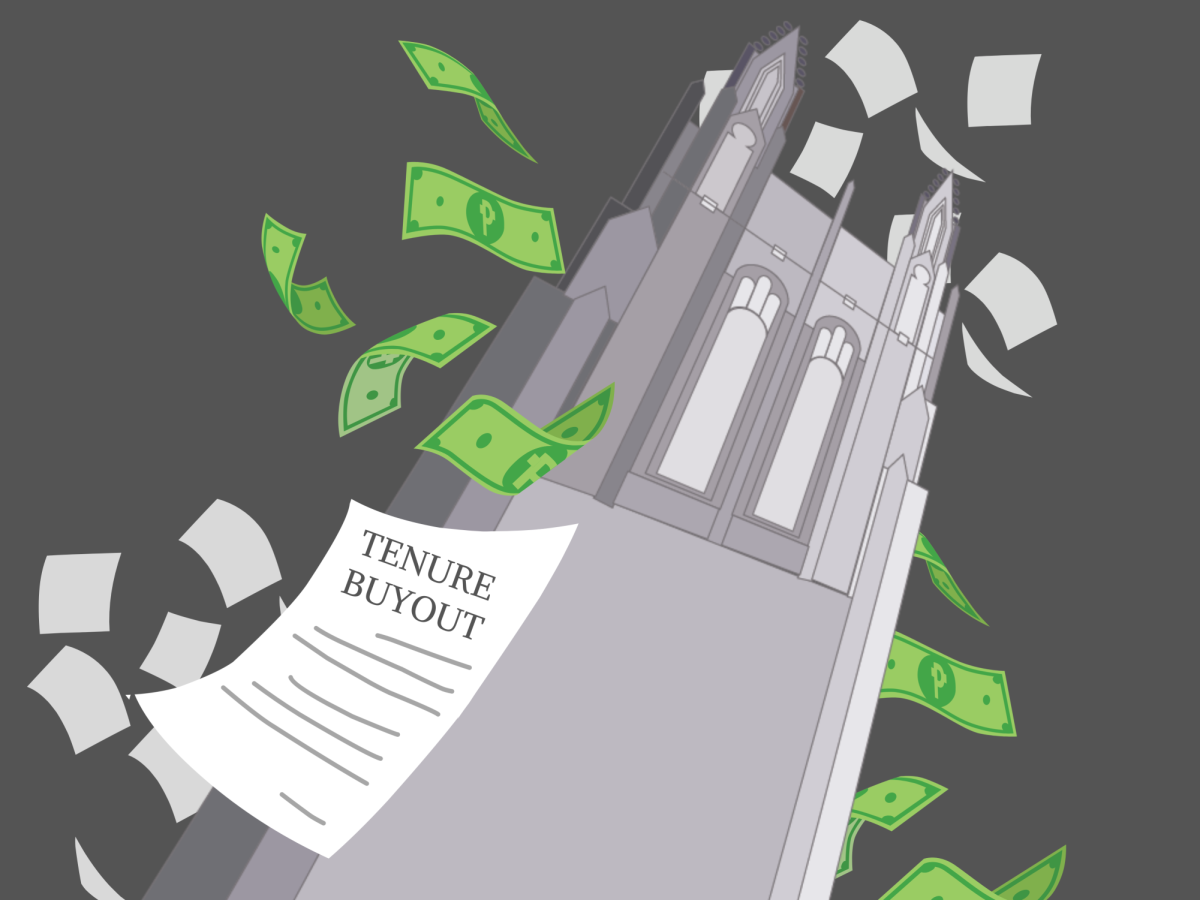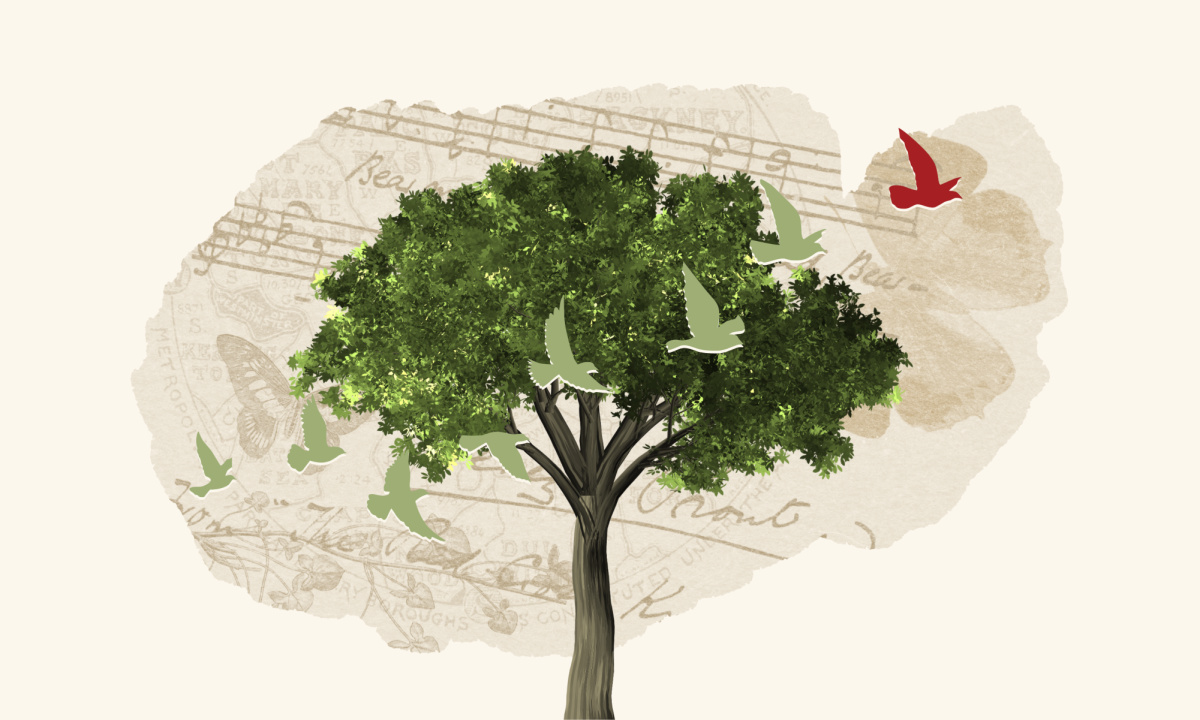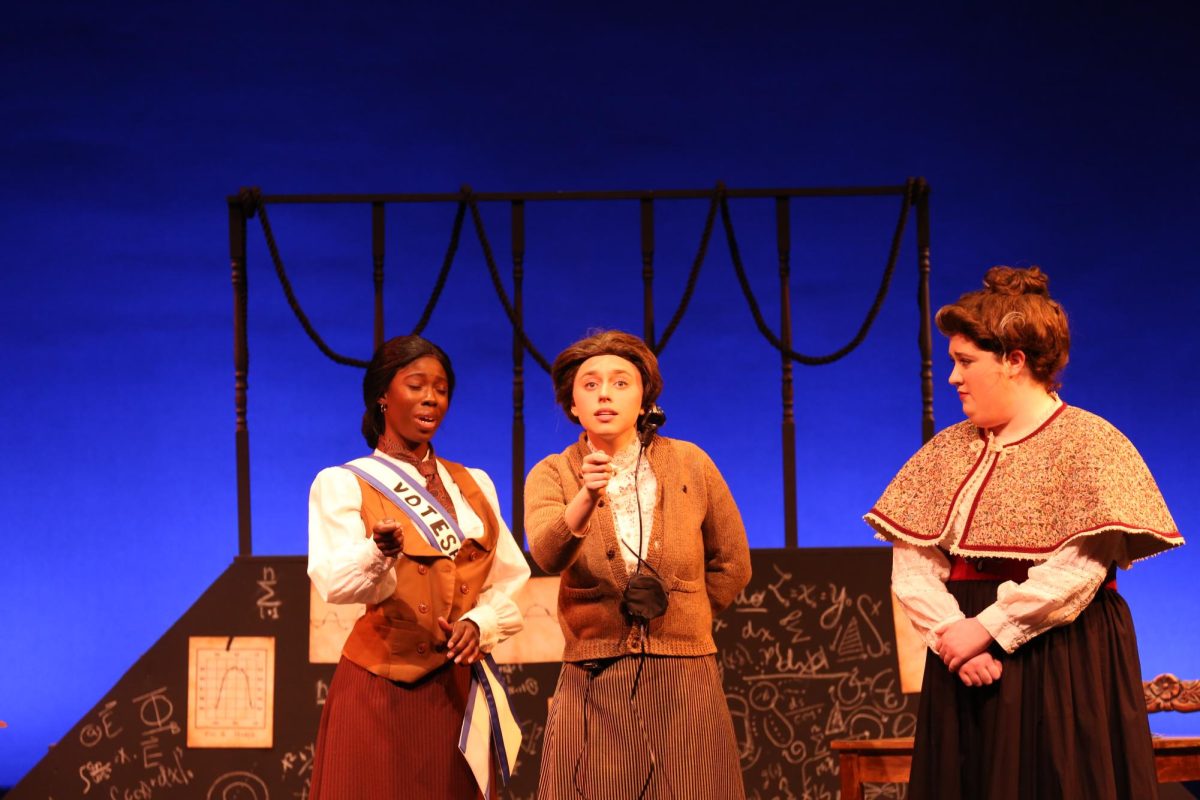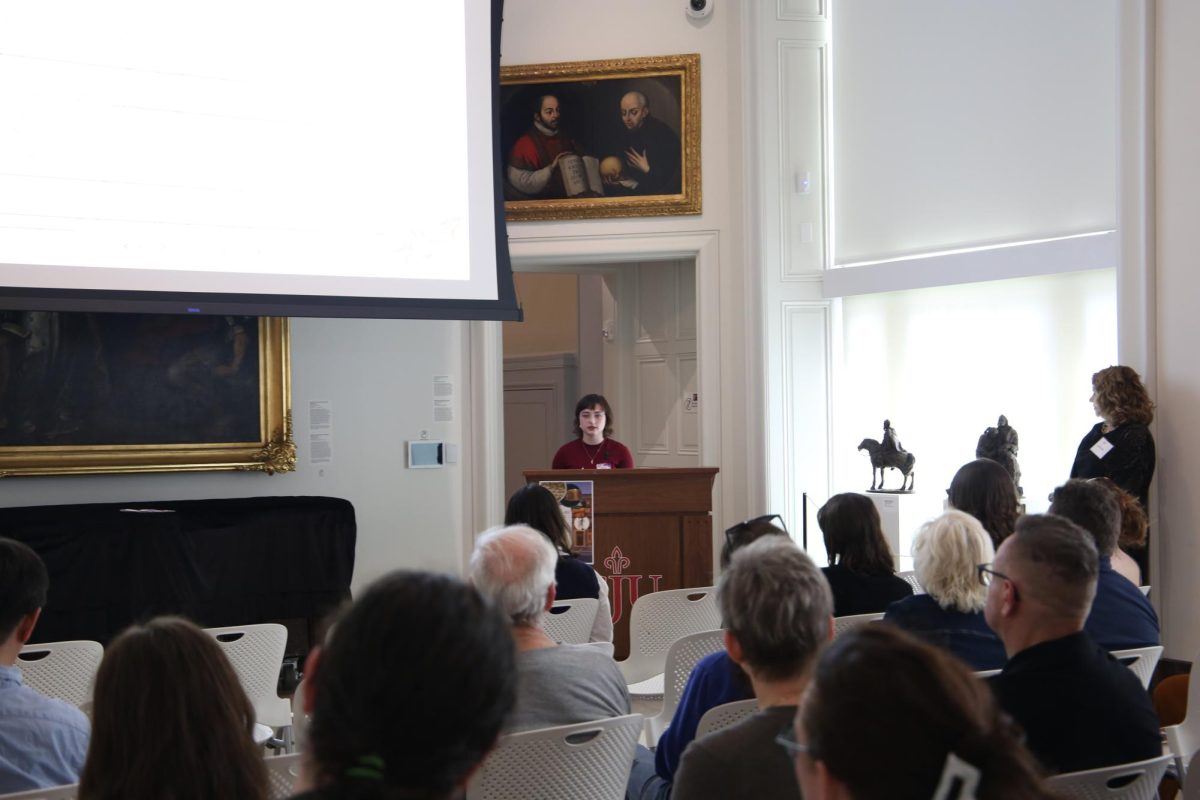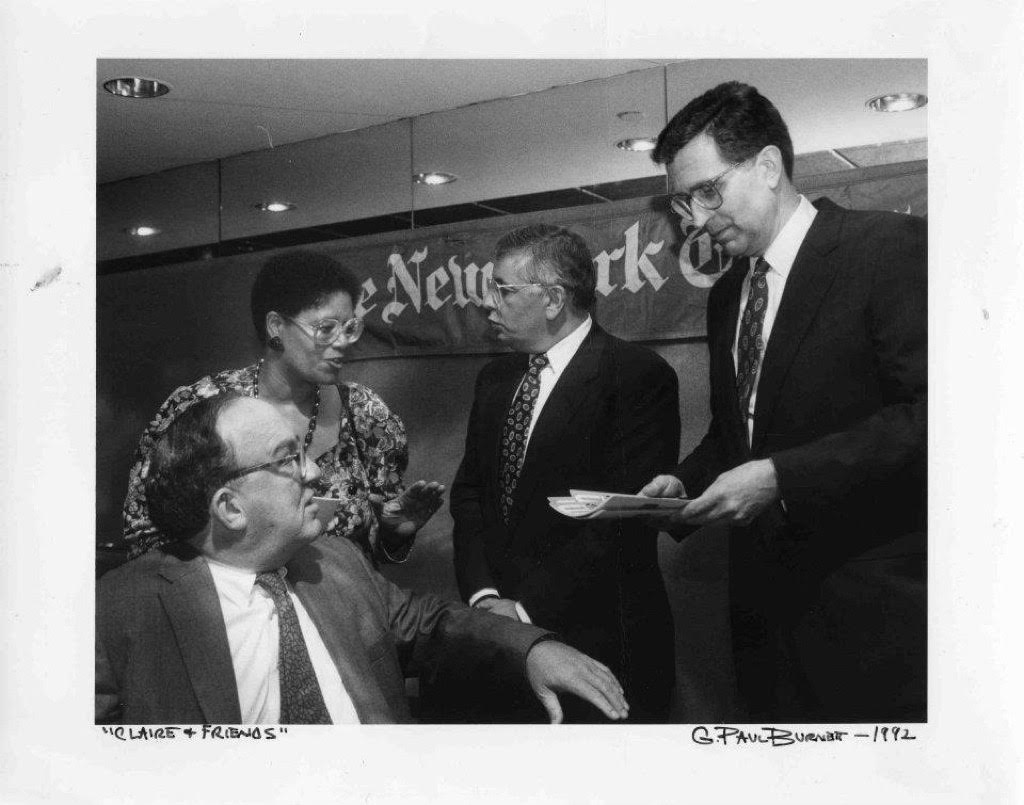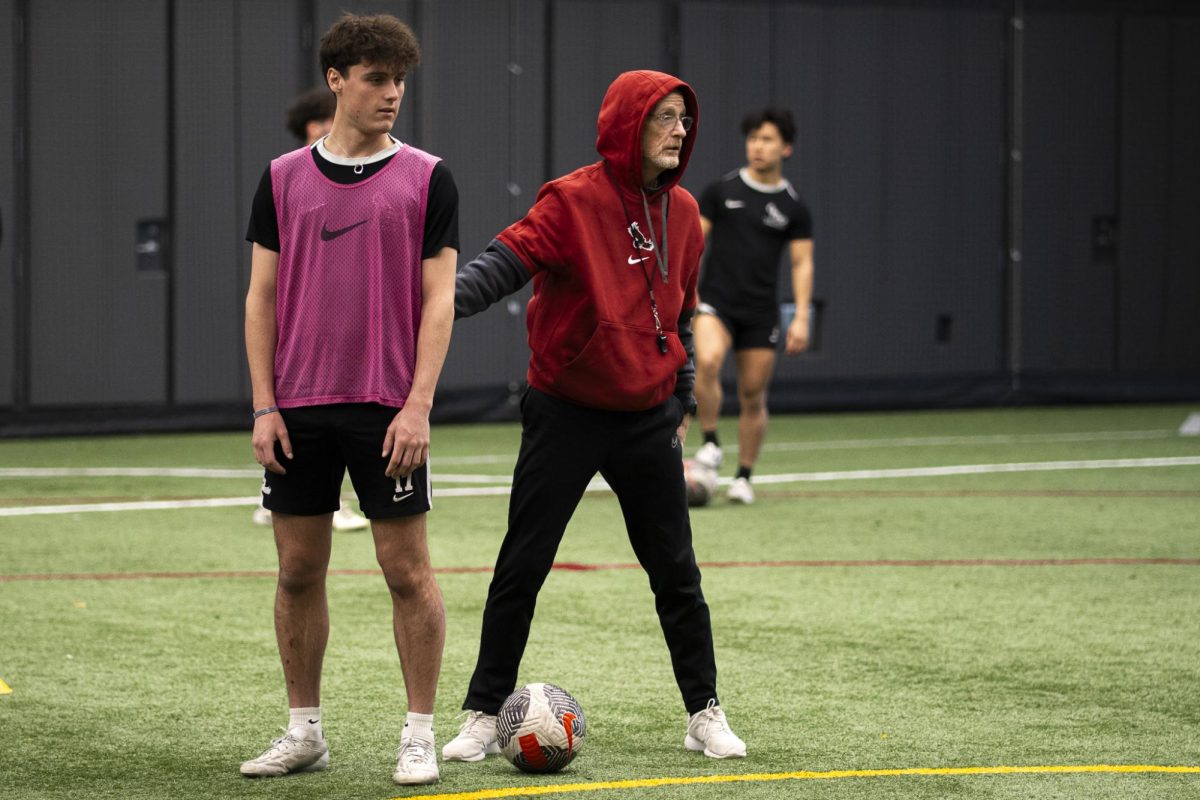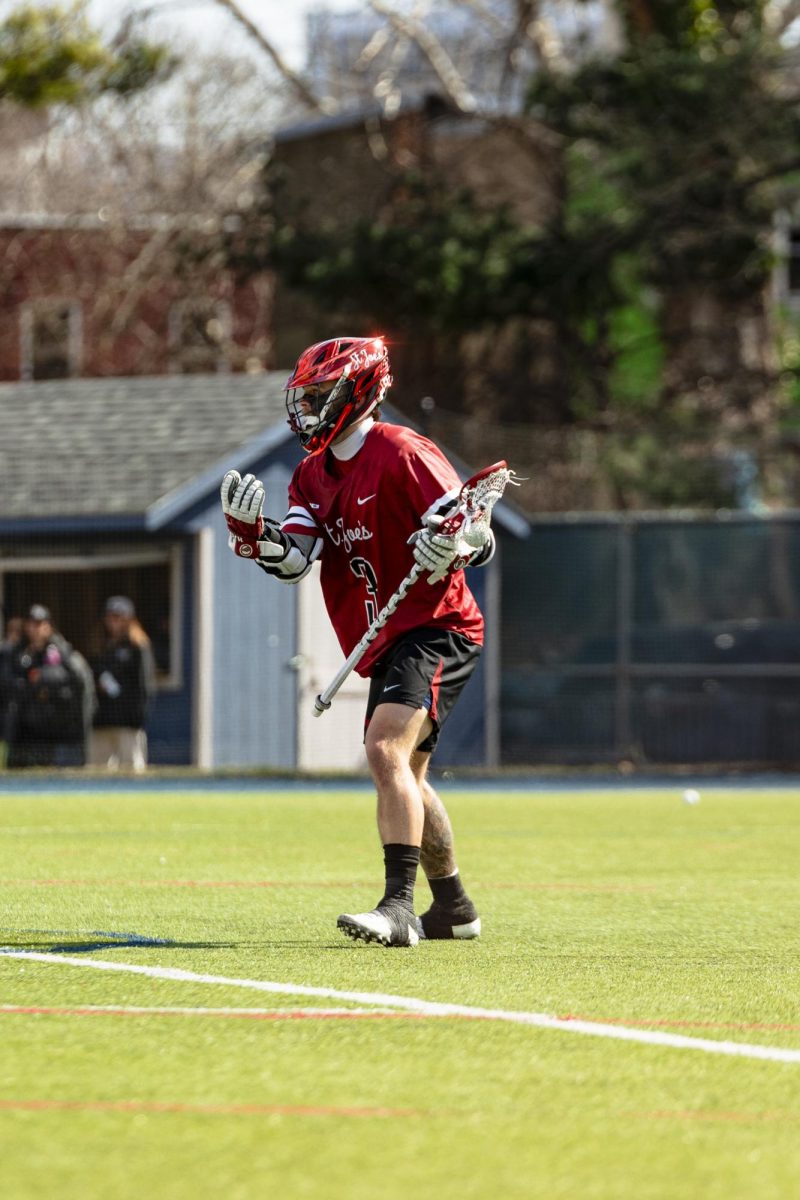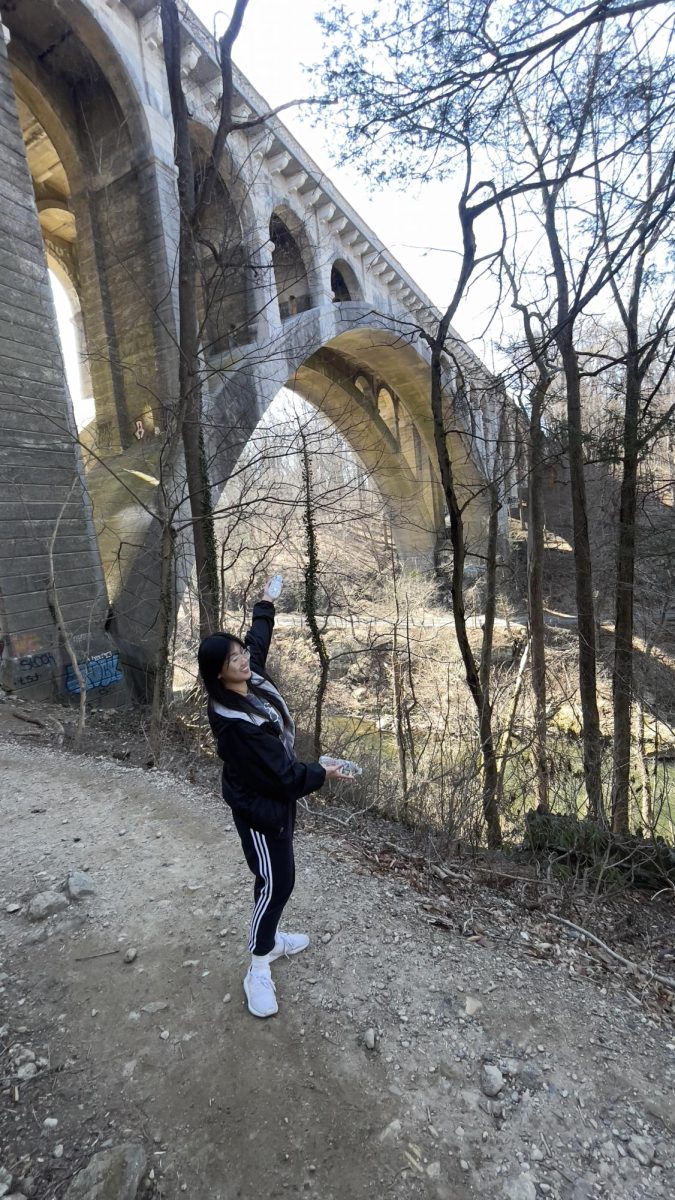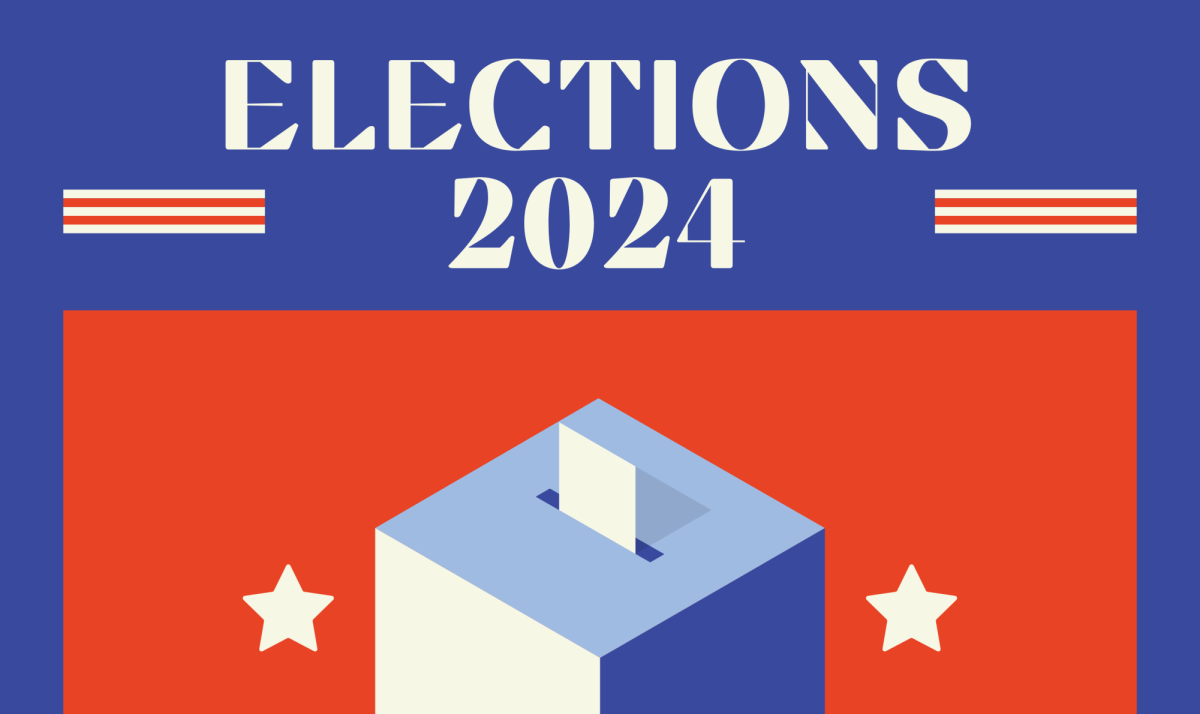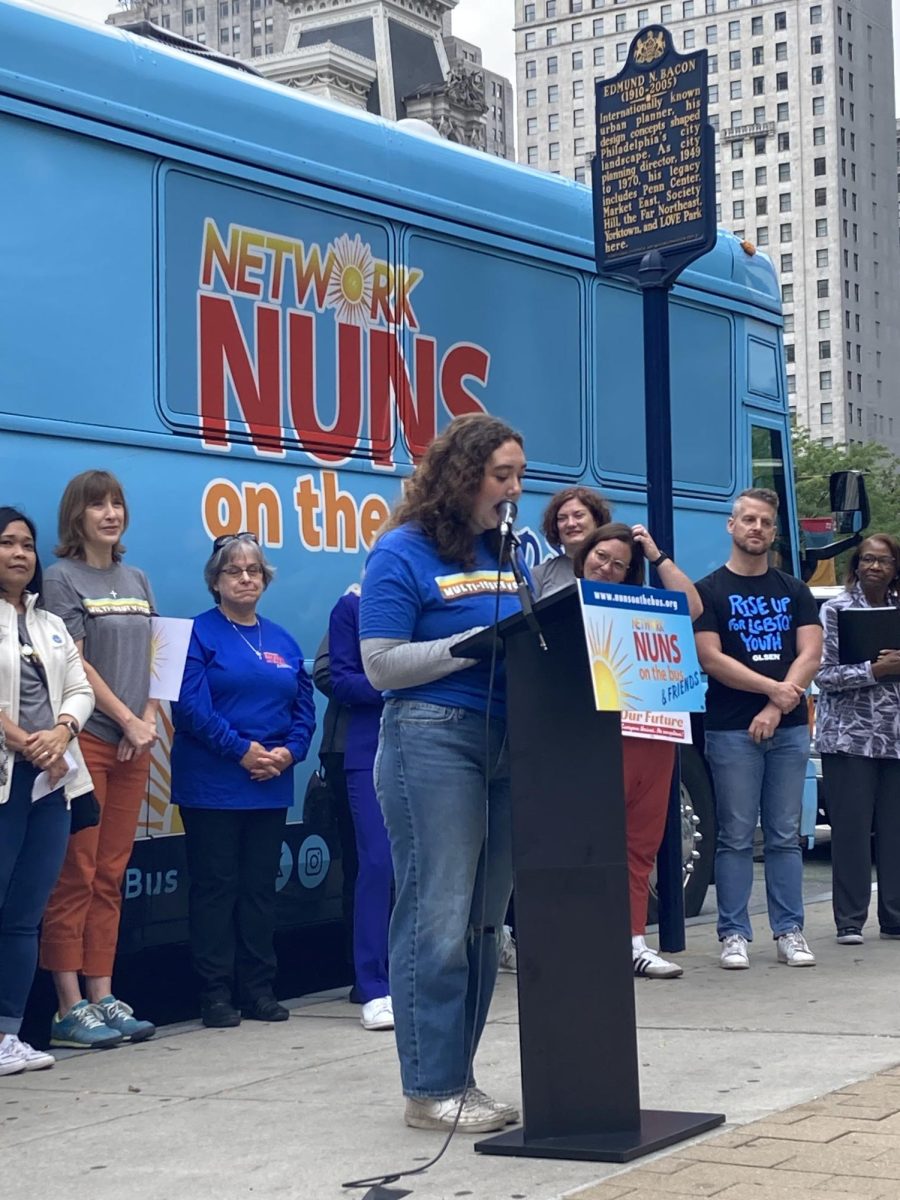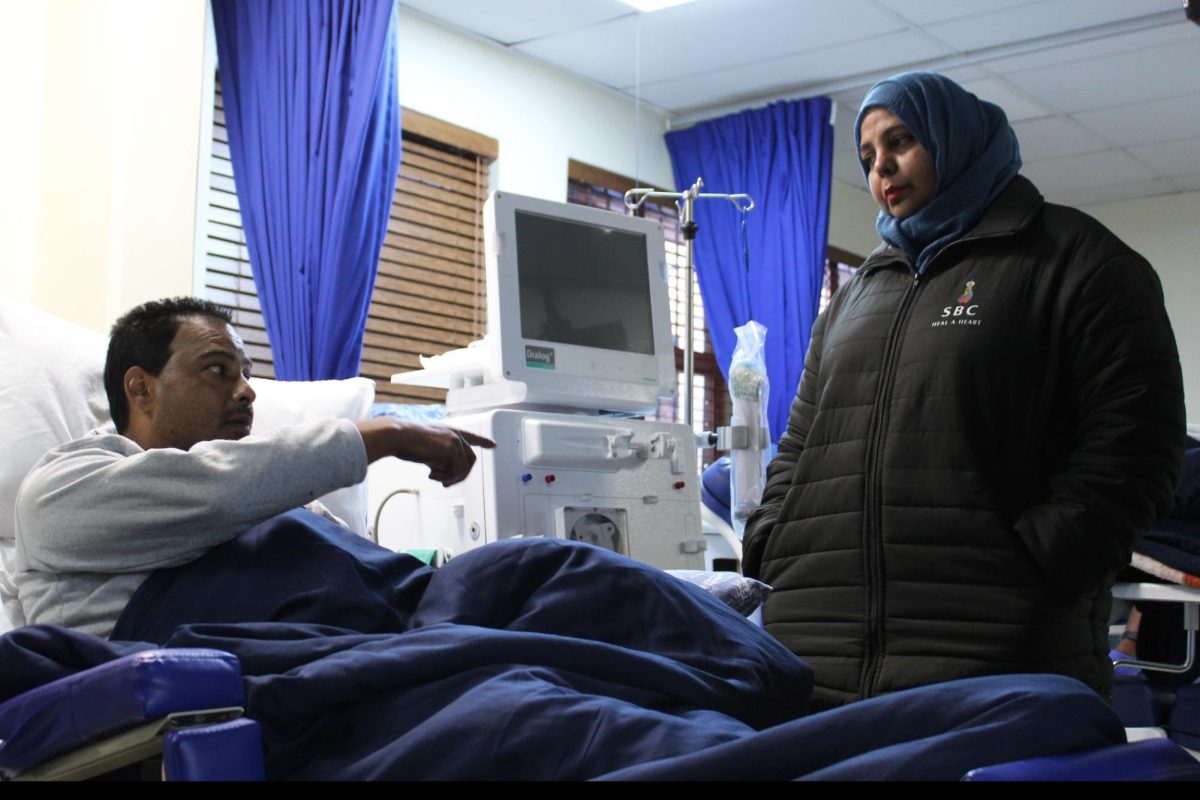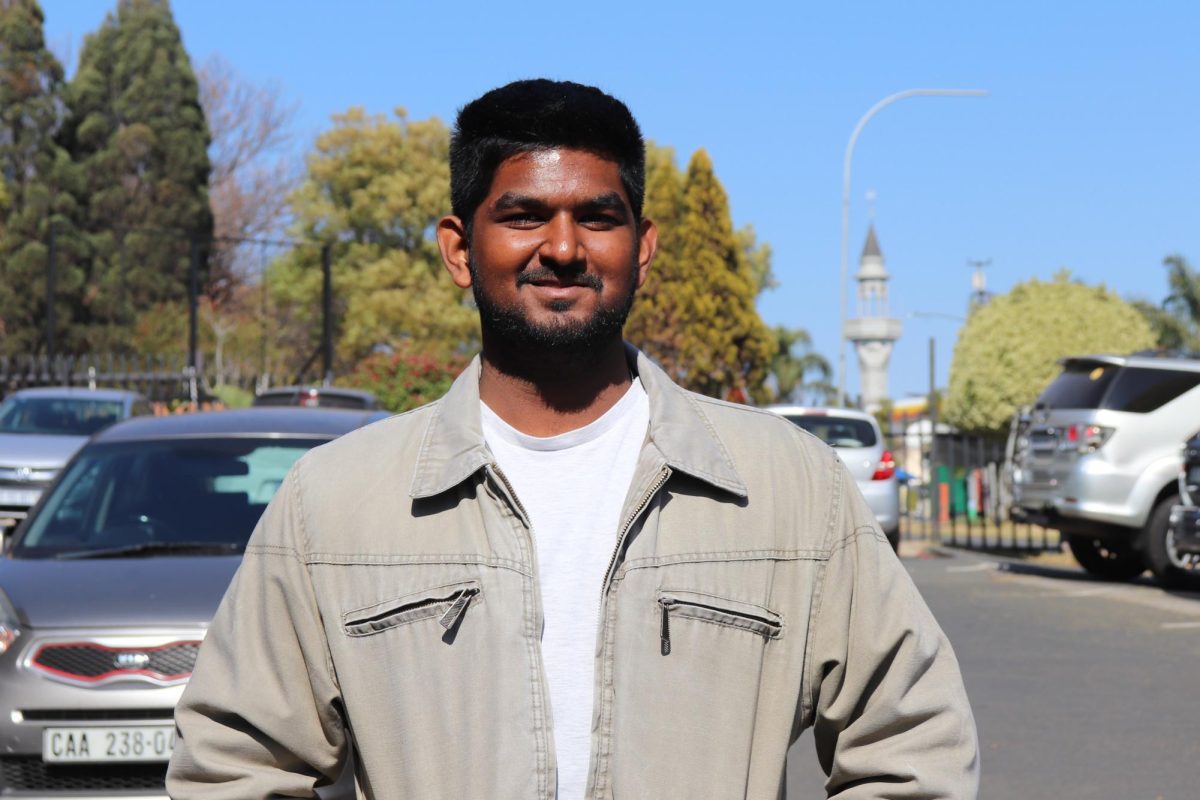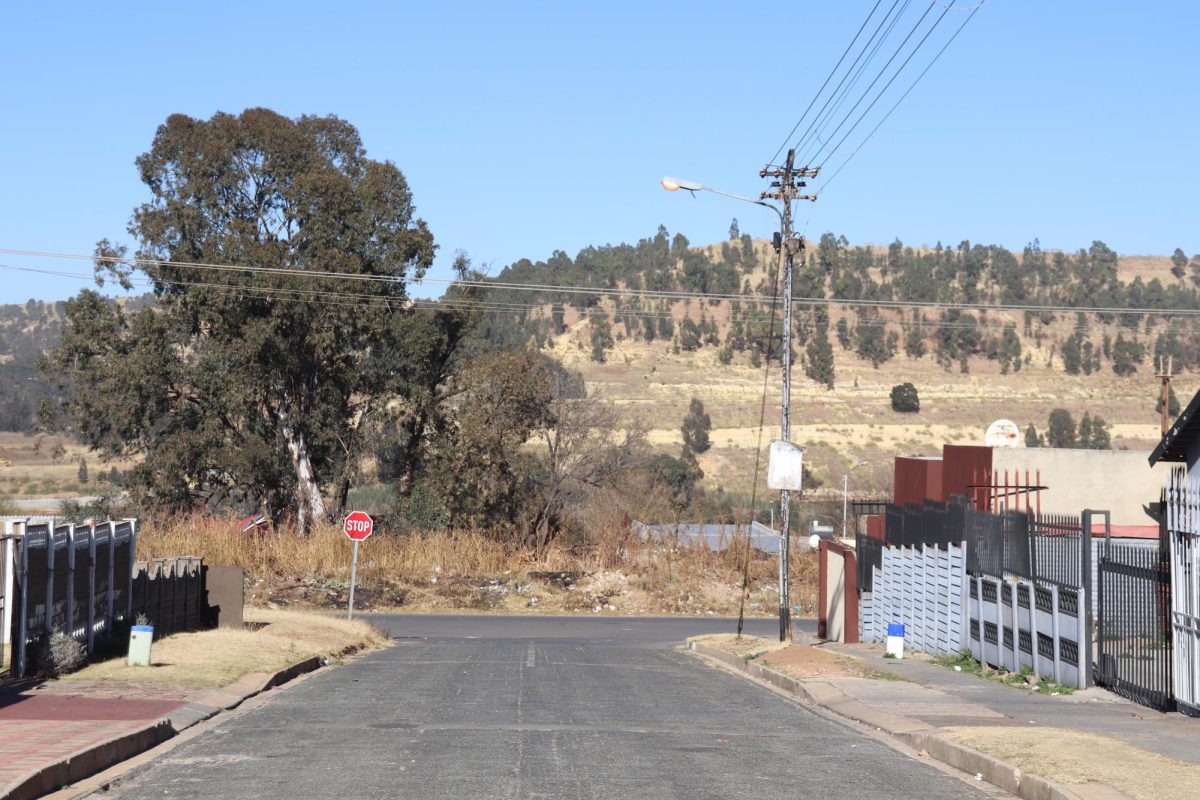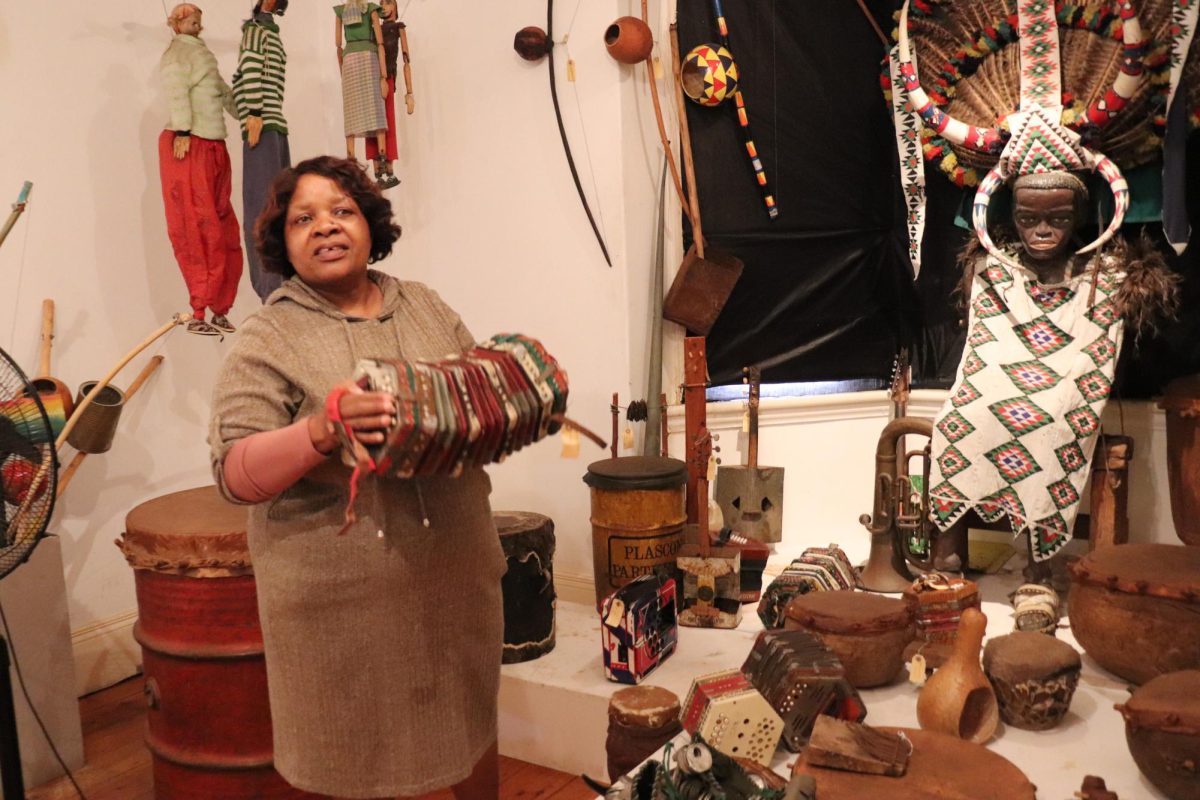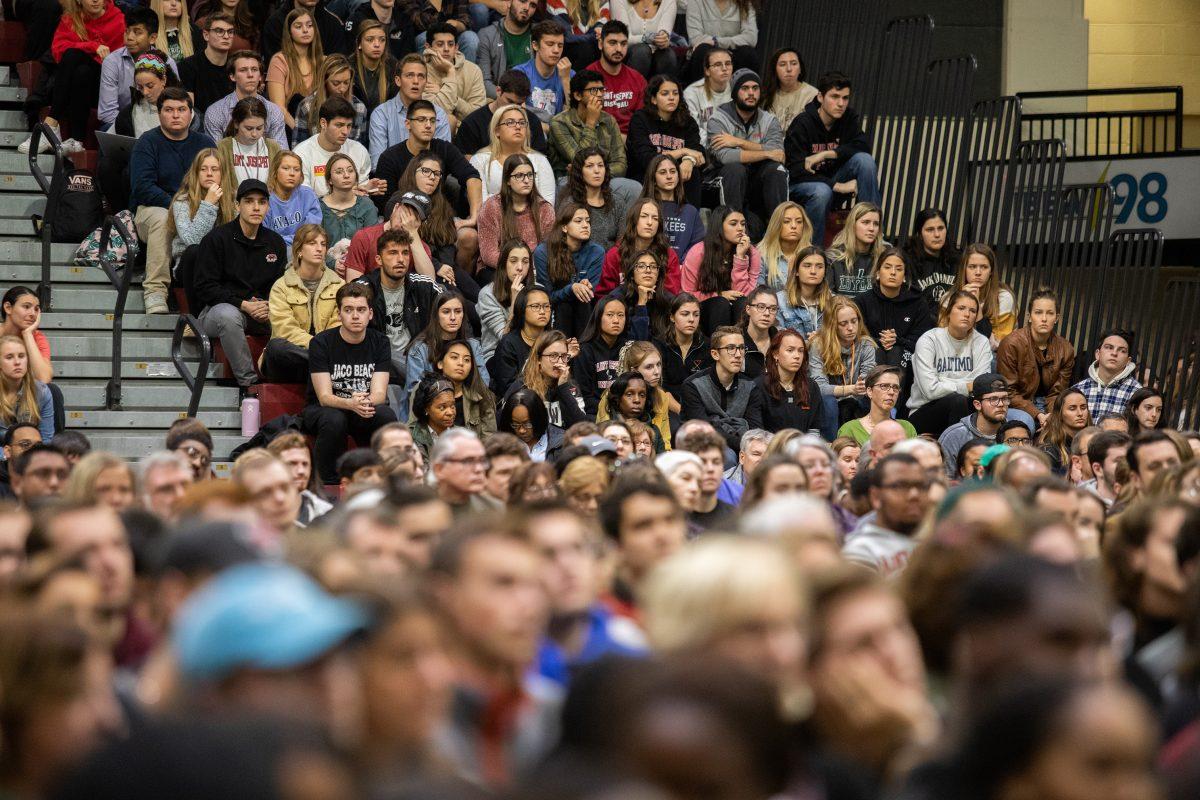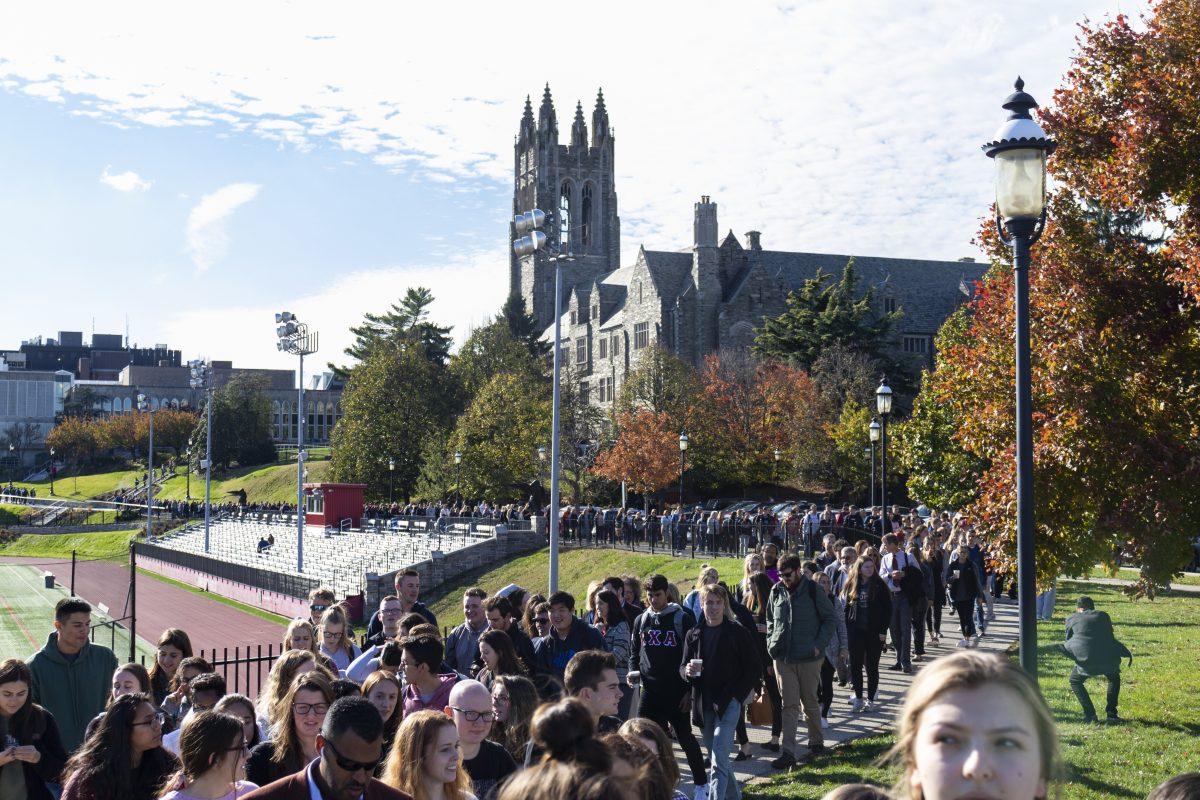A forum attended by approximately 1,800 St. Joe’s community members was held on Nov. 4 in Michael J. Hagan ’85 Arena in response to a series of four reported racial bias incidents that occurred on campus this semester.
Wadell Ridley, MBA ’19, interim chief inclusion and diversity officer, told the audience St. Joe’s has never organized a forum of this magnitude.
“It’s important to make sure that everybody knows how important it is, and that everybody really has a part,” Ridley said. “It’s incumbent on all of us to learn how to respect each other, respect culture, respect differences, respect race, sex, sexual identity.”
The two-hour forum included speeches from students, faculty, staff and administrators. The audience heard from 10 students of color from diversity organizations and two professors of color, who were invited to recount their experiences in prepared remarks.
Azizat Osinaike ’22, publicist for Bridging the Gap, said in her speech that she has experienced racism not only from students but also from her professors. Osinaike recounted an experience as the only black student in her class where she was made to defend her race.
“Why am I made to feel uncomfortable at a private institution that prides itself on inclusivity and diversity?,” Osinaike asked. “People think incidents of bias and racism only happen at a student to student level, but that is not the reality.”

Bridging the Gap, speaks at the forum on Nov. 1. PHOTO: MITCHELL SHIELDS ’22/THE HAWK
Madelyn Rose ’22 said after the forum that hearing stories directly from students who have experienced racism was powerful.
“A lot of those people who spoke, I knew a lot of them,” Rose said. “Some of them were people in my classes, and it hits you personally to see if I was in a class and they felt that way in the classroom.”
Like many of the student and faculty speakers, Jane Ingram-Noel ’20, co-president of the Black Student Union (BSU), said in her speech the university needs to commit to action.
“I need St. Joe’s to act and work toward an inclusive community for all on this campus,” Ingram-Noel said.
Several of the student speakers told The Hawk they were required to allow administrators to see their speeches beforehand.
“I ad-libbed,” Ingram-Noel said. “I understand that they don’t want us to go up there and say anything that’s on our mind because it might not be filtered for them. But I also think if this is going to be a forum about the real truth and truth of it, we should be very open to it and not censor what needs to be said.”
Aisha Lockridge, Ph.D., associate professor of English, and Susan Clampet-Lundquist Ph.D., professor of sociology, were supposed to talk about anti-racism and reconciliation at the forum but ultimately did not participate. Lockridge said their segment was cut because the screens for the PowerPoint presentation were not working, which was essential to their presentation.
“Of course I am disappointed,” Lockridge said. “I think that an education piece was really important for today, and I think that it is missing.”
Despite classes and most on-campus activities being canceled, many members of the St. Joe’s community did not attend the forum.
“Take note of who is here and who is missing,” Zoe Welsh ’22, University Student Senate (USS) inclusion and equity council member, told the audience.
Adam Mullin ’20, president of USS, acknowledged during his presentation that those who attended the forum have a responsibility to carry the forum’s message to absent members of the St. Joe’s community.
“I hope that even if you didn’t come, the presence of your peers and people who work at this institution who were here tells you something about the community we stand for and that you’re either with us or you’re against us,” Mullin said.
Laura Crispin, Ph.D., associate professor of economics, said she attended the forum because it is important to be an ally to minorities in the community.
“I think at least, at the very least, everyone is being pulled together,” Crispin said. “I want people who are bystanders to step up and to speak out using their privilege for those people who feel like they can’t speak out for themselves.”
Some attendees said they wished the program had included an opportunity for audience members to share their own opinions and experiences.
“I think it could’ve been more open to people to just come up and speak if they wanted to, for maybe a short amount of time,” Andrew Finnegan ’23 said.
Finnegan and a number of other students left after the student and faculty speakers were finished and when forum organizers shifted to explaining the procedures for reporting bias incidents.
“I thought the main point of it was to hear the student perspective and the faculty perspective on it, and I think I got that,” Finnegan said. “I don’t really need to hear about the legislative part of it.”
Joseph DiAngelo, Ed.D., dean of the Haub School of Business, said the forum is a good start but more needs to be done.
“There needs to be more dialogue amongst the students, to see the pain that students go through when they experience this,” DiAngelo said.
Despite not being able to present her prepared presentation at the forum, Lockridge said she is glad the forum was organized. She echoed many of the students and faculty who did present, calling for change.
“We have to have something, something has to change, and I feel like this was the attempt to do that,” Lockridge said.
Alex Hargrave ’20 and Carolina González ’20 contributed to this story.

